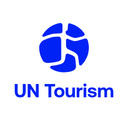The First World Sports Tourism Congress
The Role of Sport for Tourism Recovery and its Contribution to the 2030 Agenda
Renowned experts and academics in sports tourism debated over two days on current and future trends in the sector and underlined the key role of sport for the development of a more sustainable and inclusive tourism.
The first edition of the World Sports Tourism Congress (25-26 November, Lloret de Mar, Spain) focused on the unique capacity of the sector to promote sustainable and inclusive development, diversification and public-private partnership. The Congress was organized by the World Tourism Organization (UNWTO) and the Catalan Tourism Agency (ACT), an Affiliate Member of the UNWTO.
At the opening ceremony, UNWTO Secretary-General Zurab Pololikashvili declared that the holding of this Congress, with a strong in-person participation, is a clear message that the tourism sector is ready to welcome tourists again, and the recovery of sports tourism plays an important role.
Pololikashvili added: "An encouraging example is the gradual return of major sporting events, which is a major driver of the restart of tourism."
For his part, the Minister for Business and Labour of the Regional Government of Catalonia, Roger Torrent, stressed that "this Congress can give rise to ideas that allow progress towards a more responsible and sustainable tourism thanks to diversification, differentiation and de-seasonalization". In addition, he stated that tourism, and in particular sports tourism, can offer economic, employment and social opportunities that must be harnessed.
The Congress was attended in person by some 350 participants, and more than 150 followed it online. The most immediate challenges were discussed throughout the first day, ranging from the impact of COVID-19 and current trends in tourism demand and in the tourism market, to trends in sports, innovation in major sporting events, diversity and inclusion, and public-private governance strategies.
Looking to the future, the second day focused on the digital transformation of the sector and the phenomenon of e-sports, the promotion of digital marketing, the environmental framework and new research in the sector.
One of the most innovative aspects that the Congress brought was the deployment of two hologram booths in the proceedings in order to have the participation of speakers who could not attend in person.
Work on Tourism and Sports is among the priorities of the UNWTO, especially in view of the necessary recovery of the sector in general.
The Congress featured more than 50 speakers--more than half of them in person--from Canada, Croatia, the United States, Spain, France, Wales, Italy and South Africa, among others.
Among the speakers were prominent figures with recognized experience in the sports and tourism sectors, representing entities that are also UNWTO Affiliate Members such as Lavonne Wittmann, President of Skal International; Sonto Mayise, General Director of Tourism Kwazulu-Natal; Luis Valente, Head of Partnerships and Information at the FC Oporto Museum; Paraskevi Patoulidou, President of Thessaloniki Tourism Organization; Kattia Juarez-Dubón, Director of the International Sustainability Commission of the International Motorcycling Federation (FIM), and Lisa Delpy Neirotti, professor at George Washington University.
RELATED LINKS:
About UN Tourism
The World Tourism Organization (UN Tourism) is the United Nations agency responsible for the promotion of responsible, sustainable and universally accessible tourism.
As the leading international organization in the field of tourism, UN Tourism promotes tourism as a driver of economic growth, inclusive development and environmental sustainability and offers leadership and support to the sector in advancing knowledge and tourism policies worldwide.
Our Priorities
Mainstreaming tourism in the global agenda: Advocating the value of tourism as a driver of socio-economic growth and development, its inclusion as a priority in national and international policies and the need to create a level playing field for the sector to develop and prosper.
Promoting sustainable tourism development: Supporting sustainable tourism policies and practices: policies which make optimal use of environmental resources, respect the socio-cultural authenticity of host communities and provide socio-economic benefits for all.
Fostering knowledge, education and capacity building: Supporting countries to assess and address their needs in education and training, as well as providing networks for knowledge creation and exchange.
Improving tourism competitiveness: Improving UN Tourism Members' competitiveness through knowledge creation and exchange, human resources development and the promotion of excellence in areas such as policy planning, statistics and market trends, sustainable tourism development, marketing and promotion, product development and risk and crisis management.
Advancing tourism's contribution to poverty reduction and development: Maximizing the contribution of tourism to poverty reduction and achieving the SDGs by making tourism work as a tool for development and promoting the inclusion of tourism in the development agenda.
Building partnerships: Engaging with the private sector, regional and local tourism organizations, academia and research institutions, civil society and the UN system to build a more sustainable, responsible and competitive tourism sector.
Our Structure
Members: An intergovernmental organization, UN Tourism has 160 Member States, 6 Associate Members, 2 Observers and over 500 Affiliate Members.
Organs: The General Assembly is the supreme organ of the Organization. The Executive Council take all measures, in consultation with the Secretary-General, for the implementation of the decisions and recommendations of the General Assembly and reports to the Assembly.
Secretariat: UN Tourism headquarters are based in Madrid, Spain. The Secretariat is led by the Secretary-General and organized into departments covering issues such as sustainability, education, tourism trends and marketing, sustainable development, statistics and the Tourism Satellite Account (TSA), destination management, ethics and risk and crisis management. The Technical Cooperation and Silk Road Department carries out development projects in over 100 countries worldwide, while the Regional Departments for Africa, the Americas, Asia and the Pacific, Europe and the Middle East serve as the link between UN Tourism and its 160 Member States. The Affiliate Members Department represents UN Tourism's 500 plus Affiliate members.
UN Tourism Communications Department
+34 91 567 8100
UN Tourism
